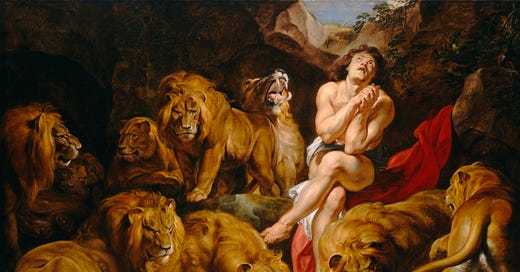IT has been a while since we featured a poem of the month. Since we moved to a fortnightly publication, we’ve given most our attention to reviews and finds. But we take a slightly different approach this issue, as we look at (one small part of) W.H. Auden’s New Year Letter.
We don’t want to stray too much into politics at The Latent Book Club for many reasons - not least because it dates what we have to say, or at least affixes its relevance to one point in time. But such comparisons are unavoidable in New Year Letter, not least because it references the day itself (the new year), but also because it points to a rift in the zeitgeist - an anxiety, and possible antidote to what is to come.
Auden’s New Year Letter as a long form poem (over a thousand lines) appeared in The Atlantic magazine in February 1941. It was addressed to his to Elizabeth Meyer, a German refugee, translator, friend and patron of the arts who was a lifelong friend of Auden. His gratitude towards her can be found here, and in other poems.
Today we examine only the end of the final stanza, however, which are some of the many Auden lines which are a) extraordinary; b) earworms; and c) recur repeatedly when engaged in life’s activities - as the best poetry often does. Moreover, they are contemporary, in that recent political events demonstrate we need them now, more than ever.
Letter to Elizabeth Mayer
Part III
(‘New Year Letter’)
W. H. Auden (1907 - 1973). Published: 1941
We fall down in the dance, we make The old ridiculous mistake, But always there are such as you Forgiving, helping what we do. O every day in sleep and labor Our life and death are with our neighbor. And love illuminates again The city and the lion’s den, The world’s great rage, the travel of young men.
Latent Book Club Analysis
For a starter, this poem is quintessential Auden. It is at once deep, and accessible. We have made the comparison before, but Auden really paved the way for the poets that were his contemporaries (Betjeman) and his successors, from Larkin all the way to Ted Hughes and Simon Armitage, with modern, accessible speech.
Incidentally, the ‘O’ is quite an Auden trademark too - this comes across in other works, notably As I Walked Out One Evening (‘O Plunge your hands in water/Plunge them in up to the wrist/ Stare, stare in the basin/And wonder what you have missed’) and Death’s Echo (‘O who can ever gaze his fill/Farmer and fisherman say’).
In New Year Letter, the poet chides us for being useless, figures of fun; even in our quotidien activities we are doomed to repeat our errors. On the way throughout our lives we meet some benevolent beings who pick us up, and put us on the right track again. Such persons are to us as Mayer to Auden: Essential. The relationships we forge with them leads the introspective to reflect on how linked we are, how our lives truly are in the hands of others.
Auden has hit these themes many times before; sometimes as in September 1, 1939 to his later regret. Others have commented on the theme of Agapé in his work; the Greek term for unconditional love. What we can say from New Year Letter is that at the end of this piece Auden moves from helplessness to hopefulness, under the loving watch of others.
As Alexander McCall Smith has observed in his very worthwhile treatise about Auden, our life and death really are with our neighbour. And if one can accept this, and accept others, love may illuminate all, and by doing so - shine a light on even the dark places (The solider; the lion’s den).
What is perhaps most worthwhile about this poem is its symbiotic for understanding the needs of our neighbour. We do not always have to be the person that is picked up; we can be this person for others. When we look at contemporary politics, and more particularly, events on the global stage, we need Auden’s insight and sympathy, of moderation and temperance, of respect for opposition and dare we say even love - perhaps more now, than ever before.
If you have the time, the letter in its full format is a wonderful read and is very worthy. We have also have an archive of poetry analysis available on this site, including Auden’s Consider this and in our Time.
Before you go…
Read more of our Latent Book Club Poetry Series
Check out our long form poetry analysis:
Or read our entire back catalogue in our poetry archive.
Read Our Catalogue of Long Form Literary Criticism
Read the Latent Book Club’s ever growing archive of long form literary criticism for free, including:
Max Porter’s unconventional Lanny
Ian McEwan’s 2019 parable Machines Like Me
Patrick Stewart’s stellar autobiography, Making It So
Or see of our full range of literary criticism in our archive.
Subscribe to The Latent Book Club for free
Want more poetry analysis? We feature a new one every month. Make sure you don’t miss them, and other great recommendations, by subscribing for free to The Latent Book Club.





